
TROUBLED DUBS: Writers Honor Molloy and Kevin Holohan Visit Little City Books to Explore the Dark Humor of the Irish — WEDNESDAY, MAY 3rd
This Wednesday, May 3rd, Little City Books (100 Bloomfield Street) will host Irish writers Honor Molloy (Smarty Girl) and Kevin Holohan (The Brothers’ Lot), as well as Colin Lane, Maeve Price and musician Dave Sidman for a night of craic agus ceol, celebrating the Irish, Irish-America, and their unique impact on culture and literature.
Both Molloy and Holohan chat about the writing process, the motivation behind their work and the ghosts that spur them on…
***********
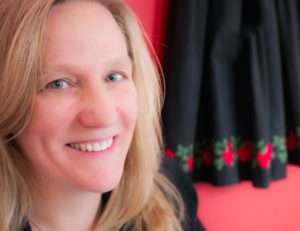
Author Honor Molloy
HONOR MOLLOY: We should start with how we met. It’s always easy for me to remember the year because Akashic published your book in March of 2011. And it was summer, or the end of summer. August? When was it?
KEVIN HOLOHAN: I think it was August of 2011.
HM: The Irish American Writers & Artists holds a monthly salon at Bar Thalia at Symphony Space. I was heading up there for the first time. How did you hear about it, Kevin?
KH: An old friend of mine from Dublin mentioned it to me and, though I never consider myself a “joiner,” I decided to go along.
HM: I was excited to read a segment from Smarty Girl – a book I was trying to find a publisher for. I was excited to meet Peter Quinn, who was the president of the IAW&A at the time. I was glad to be in a room filled with writers – because I’d just spent a decade holed up writing me bewk.

Author Kevin Holohan
KH: I was unusually nervous that night. I had read the book at various venues and book festivals and found the story resonated with people from many backgrounds, but I was very curious to see up close how Irish Americans would react to the book. I had a fair idea how Irish people would, but me being sort of deracinated Irish living in America, I had no idea how Irish Americans would react to it.
HM: I had a humorous story about my kindergarten teacher – an ogre – who shamed us and beat the hell out of a pack of five year-olds every moment of every day. I had my script in hand waiting for my turn when this Dubliner stood up and read a bitingly funny and excoriating scene that took place in a Christian Brothers school. I remember one particularly evil Brother viciously leathering one of the boys in the face – across the face?
KH: I had planned to read a much more “user friendly” comic piece and decided at the last minute that that would not really do justice to the book and I was particularly interested to see how the mix comedy and darkness would be received.
HM: We were telling the same story – only mine was realism – and told from a Protestant girl’s perspective. Yours is timeless. The Brothers’ Lot is a bitter satire. It reminds me of Orwell’s essay “Such, Such Were the Joys.”
 KH: The Brothers’ Lot started out as an angry catalog of abuse and I stalled on it because that was not what I wanted it to be. So I had to find another way.
KH: The Brothers’ Lot started out as an angry catalog of abuse and I stalled on it because that was not what I wanted it to be. So I had to find another way.
HM: It also feels a bit like science fiction.
KH: it definitely has elements of fantasy. Two key things that propelled this. One was the realization that I could make the building itself a character, and the other was a quote I came across from Mel Brooks about making The Producers. He said: “The only way to get even with anybody is to ridicule them.” That was the key. I took the realism and dialed it up into grotesquery and that gave me the freedom to catalog the darkness and at the same time satirize the institutional madness of it all. Mind you, some of the grotesques are not that far from the truth and there are some horrible truths that I did not touch on in the book.
HM: One of the things we had in common – we discussed this a lot and supported each other and did readings together up and down the Northeast Corridor – is that we completed manuscripts at a time when the marketplace was in turmoil. How did you find your publishers – Akashic and No Exit Press?
KH: Akashic were wonderful to work with. Their editorial suggestions were thoughtful and consistently on the money, sometimes catching cracks that I had hoped no one would see and suggesting ways to fix them that were in tune with the intention of the book. It was like they knew the book I was trying to write and pointed out where I was getting in my own way. No Exit Press were great too, and they were really impressed by the exposure the book got in Ireland. What prompted you to write Smarty Girl?
HM: Patrick Pearse said, “There is one way to appease a ghost. You must do the thing it asks you.” Ireland is full of ghosts.
My Ireland is certainly is. Due to psychic and actual invasions from within and without—colonization, institutional oppression, the Catholic church, pater, patria, school, hospitals, the TB wards, and good old John Barleycorn. I mean, who didn’t sack us?
It’s ghosts who haunt me. The phantoms of my Irish family– my spinster Aunty Marguerite, my beloved, secretly gay Uncle Niall, my father John Molloy, once named “the funniest man in Ireland.” The memory of my high-hearted American mam. My storytelling sister Shivaun. The ghost of myself. Back here. Dublin, 1969.
KH: Funny you mention ghosts. I think so many people who grew up in Ireland were haunted. I had no intention of writing about any of that – until these mealy-mouthed, legalistic non-apologies started to come out from some of the religious orders in the 1990s, and I said, “No. That’s not enough.” There was an evasive “bad apples,” “mistakes were made” tone to it all that infuriated me. What was not being confronted was the revolting collusion of church and state and the cruelty and rot at the heart of church-run institutions that had been permitted, concealed, and enabled for decades.
 HM: I call them the sinstitutions cause even now – just about weekly — we hear about yet another atrocity coming out of Ireland. When I started writing Smarty Girl, I had no idea how deeply these sinstitutions cut through the heart of our country. And my family. My mother fell in love with the most beautiful, most broken boy. My father was a product of multi-system abuse: at home, at school with the Christian Brothers, and he spent his early manhood in and out of Ireland’s TB sanitariums. “On Tour for seven years.” That’s how he described it. His black humor is a classic example of how he dealt with his past. It fueled his comedy, his perspective on humanity, his acting talent and, ultimately, his self-destruction and our family’s devastation. Despite my mother’s adoration, the kids’ love, he fell down.
HM: I call them the sinstitutions cause even now – just about weekly — we hear about yet another atrocity coming out of Ireland. When I started writing Smarty Girl, I had no idea how deeply these sinstitutions cut through the heart of our country. And my family. My mother fell in love with the most beautiful, most broken boy. My father was a product of multi-system abuse: at home, at school with the Christian Brothers, and he spent his early manhood in and out of Ireland’s TB sanitariums. “On Tour for seven years.” That’s how he described it. His black humor is a classic example of how he dealt with his past. It fueled his comedy, his perspective on humanity, his acting talent and, ultimately, his self-destruction and our family’s devastation. Despite my mother’s adoration, the kids’ love, he fell down.
KH: Humor is an interesting thing. I think it of it as the weapon of the disenfranchised and the more disenfranchised, the darker it gets. To get The Brothers’ Lot to a place where it would be readable and still slyly tell the real story I had to go big and clownish in spots with the humor, exaggerating while alluding to or invoking real history. It was a very thin line to walk but for the most part I think it was successful.
HM: Do you think this brand of black humor is inherently Irish?
KH: The Irish don’t have a monopoly on dark humor, but I suspect our history has given us an irreverence for power structures and a skepticism about cant and empty pieties.
HM: The structure of your fiction can hold what’s actually going on in the kid-brain and between the lads when such violence such hatred and torture has been unleashed and directed at them.
KH: I used the structure of the book to try to distance myself from my personal feelings. I’m curious though why you as a playwright chose to write a novel – when the story of Smarty Girl is so deeply personal.
HM: I chose fiction because there was much I didn’t know; filling in the gaps took the story out of the realm of memoir. By assuming different personas, like an acting exercise, I could sublimate and experience them. My goal was to look back and not react as the child I was, but as a conscious adult, an artist sorting through the remnants of these lives. I wanted to make sense of whatever picture presented itself, and then rearrange things to tell the story I knew, suspected, intuited. Many times this was as painful as the original experiences. My task was always to go deeper, discover more, to better grasp what made my family tick. Ironically, I invented things – lied, in a way – in order to tell bigger truths…
***********
Join Molloy and Holohan as they visit Little City Books on Wednesday, May 3rd at 8:00 p.m. for more of this deeply revealing look at the forces that forge Irish literature.
Molloy and Holohan will be joined by actors Colin Lane and Maeve Price, and musician Dave Sidman.
Lane’s acting credits range from New York’s own Irish Repertory Theater to Broadway. Price has performed at the Abbey Theatre and in venues across the United States.
TICKETS for this event must be reserved in advance…


 Previous Article
Previous Article Next Article
Next Article Area Dip$#!+ Jumps Off Hoboken Pier on a Dare
Area Dip$#!+ Jumps Off Hoboken Pier on a Dare 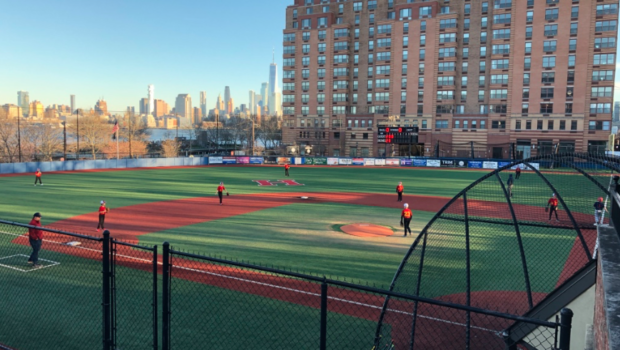 Activities Suspended, State of Emergency Declared by City of Hoboken
Activities Suspended, State of Emergency Declared by City of Hoboken  Hoboken Begins Separate Road Work Project on Block Adjacent to Major Water Main Break
Hoboken Begins Separate Road Work Project on Block Adjacent to Major Water Main Break 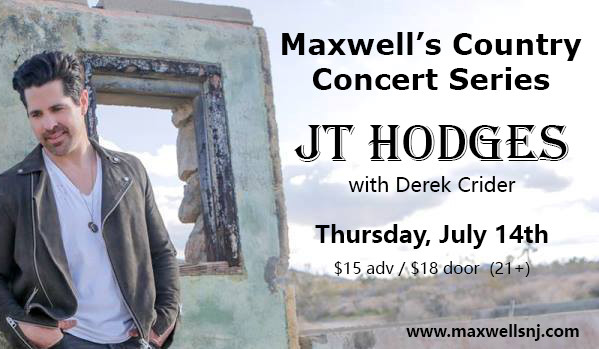 “ALREADY HIGH”: JT Hodges Plays the Maxwell Country Concert Series — THURSDAY
“ALREADY HIGH”: JT Hodges Plays the Maxwell Country Concert Series — THURSDAY  FEATURED PROPERTY: 376 Ridgewood Ave, Glen Ridge, NJ — Stunning 6BR/4.5BA Colonial | $1,999,999
FEATURED PROPERTY: 376 Ridgewood Ave, Glen Ridge, NJ — Stunning 6BR/4.5BA Colonial | $1,999,999 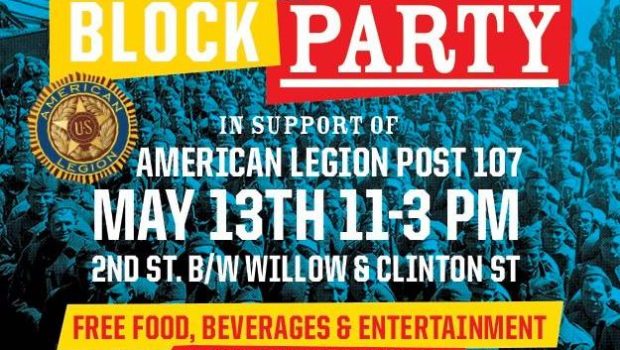 REBUILD: Block Party to Raise Funds for Hoboken American Legion Post 107 — SATURDAY, MAY 13th
REBUILD: Block Party to Raise Funds for Hoboken American Legion Post 107 — SATURDAY, MAY 13th 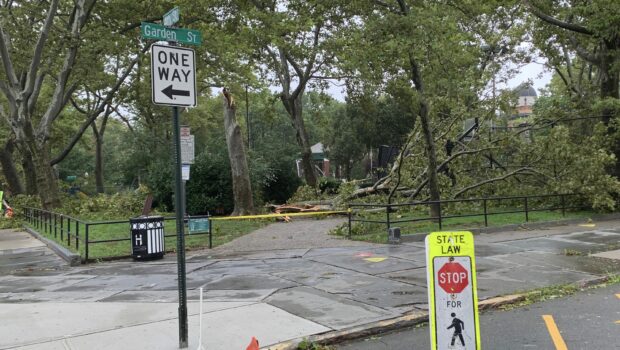 Trees Down, Power Outages Reported in Hoboken and Jersey City as Tropical Storm Isaias Rolls Through
Trees Down, Power Outages Reported in Hoboken and Jersey City as Tropical Storm Isaias Rolls Through  hOMES: Your Weekly Insight into Hoboken Real Estate Trends | APR. 22-28, 2016
hOMES: Your Weekly Insight into Hoboken Real Estate Trends | APR. 22-28, 2016